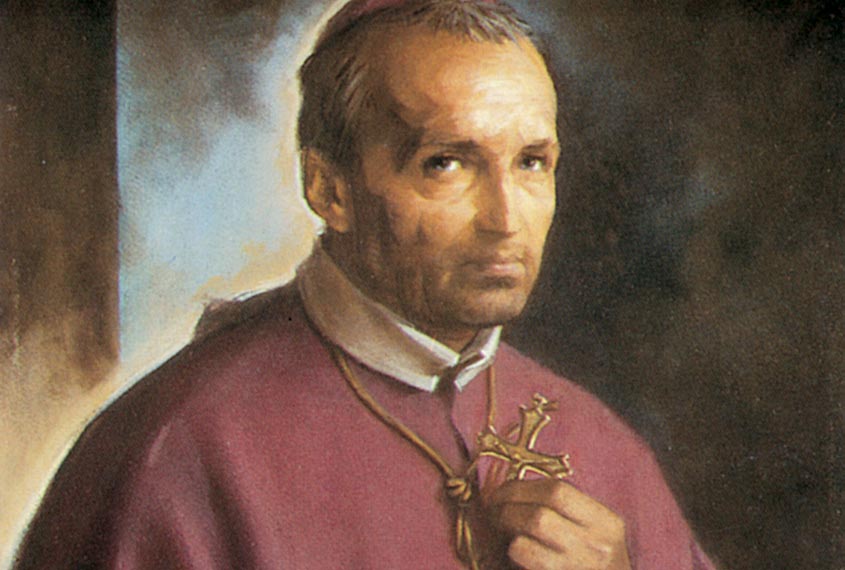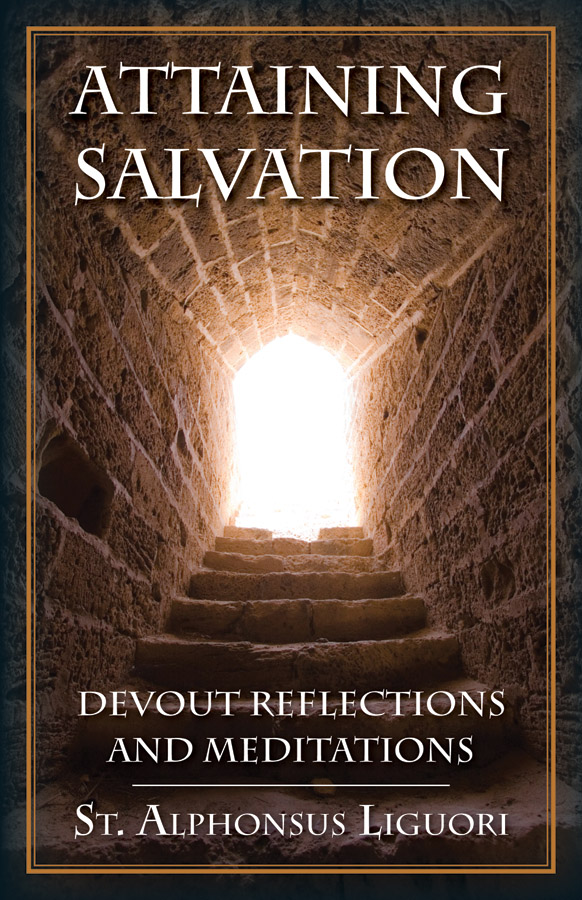If we desire salvation we must pray. In this excerpt taken from Attaining Salvation, Saint Alphonsus reflects upon the necessity of prayer and its integral role in our salvation.
The Necessity Of Prayer
Prayer is not only useful to us, but necessary for salvation. Hence it is that God, because He desires that we should all be saved, has enjoined it on us by a precept. “Ask, and it shall be given you.” (Matthew 7:7). Jesus Christ says, that men “ought always to pray.” (Luke 18:1). He does not say it is useful or benefitting, but that men “ought always to pray.” Wherefore, the Doctors of the Church justly say that a man cannot be excused from grievous [i.e., mortal] sin who neglects to recommend himself to God at least once in a month and whenever he finds himself assaulted by any strong temptation.
The reason for this necessity of recommending ourselves often to God arises from our inability to do any good work or to have any good thoughts of ourselves. “Without Me you can do nothing,” says Jesus Christ. (John 15:5). And St. Paul teaches the same: “Not that we are sufficient to think anything of ourselves, as of ourselves.” (2 Corinthians 3:5). Therefore, St. Philip Neri used to say that he despaired of himself. On the other hand, St. Augustine writes that God desires to give us His graces, but does not bestow them, except on those who ask for them. And especially, says the Saint, He only gives the grace of perseverance to those who seek it.
A Defense Of The Soul
And as the devil never ceases to go about in order to devour us, we ought necessarily to defend ourselves unceasingly by prayer. “Continual prayer is necessary for man,” says St. Thomas. And Jesus Christ Himself was the first to teach us: “We ought always to pray and not to faint.” (Luke 18:1). Otherwise, how shall we be able to resist the incessant temptations of the world and the devil? It was an error of Jansenius, condemned by the Church, to say that the observance of certain precepts was impossible to us and that sometimes the grace which would render it possible is wanting to us. But “God is faithful, who will not suffer you to be tempted above that which you are able,” as St. Paul assures us. (1 Corinthians 10:13). Yet He requires that when we are tempted, we should have recourse to Him for help to resist. St. Augustine writes: “The law is given that grace may be sought; grace is given that the law may be fulfilled.” Seeing that the law cannot be obeyed by us without grace, God has yet given us the law in order that we may seek the grace to fulfill it. And this was well expressed by the Council of Trent in these words: “God does not command impossibilities, but in commanding, He admonishes thee both to do what thou canst, and seek aid for what thou canst not do, and He helps thee, that thou mayest be able to do it.” (Council of Trent, Session 6, Chapter 11).
Thus, God is very ready to give us His help in order that we may not be overcome by temptation, but this help He gives to those only who have recourse to Him in the time of temptation, and especially in temptations against chastity. For as the Wise Man wrote: “As I knew that I could not otherwise be continent except God gave it . . . I went to the Lord and besought Him.” (Wisdom 8:21). Let us rest assured that we would not have strength to overcome our carnal appetites if God did not give us help to do so, and this help we shall not have without prayer; but if we pray, we shall assuredly have it in order to resist all the devils of Hell by the power of God, who strengthens us. As St. Paul says: “I can do all things in Him who strengtheneth me.” (Philippians 4:13).
Recourse To The Saints
It also helps us very much to obtain divine grace if we have recourse to the intercession of the Saints, for they have great power with God, especially for the benefit of those who are their special clients. And this is not a mere optional devotion, but is a duty, as St. Thomas writes. For he says that the order established by God requires, that we mortals should receive the helps which are necessary for our salvation through the prayers of the Saints.
With greater force must this apply to the intercession of the Most Holy Virgin Mary, whose prayers are of greater efficacy than those of all the Saints, the more so because, as St. Bernard says, it is through Mary that we have access to Jesus Christ, our Mediator and Saviour. “Through thee,” says the holy Doctor, “we have access to the Son, O thou finder of grace, mother of salvation, that through thee He may receive us, who through thee was given to us.”
Pray With Confidence
Let us then pray, and pray with confidence, says the Apostle. “Let us go therefore with confidence to the throne of grace, that we may obtain mercy and find grace in seasonable aid.” (Hebrews 4:16). Jesus Christ now sits on the throne of grace, to console all who have recourse to Him, and says: “Ask, and it shall be given to you.” (Matthew 7:7). Now He says to us that whatever we ask of Him, if we have confidence, shall all be given to us. “All things whatsoever you ask when you pray, believe that you shall receive, and they shall come to you.” (Mark 11:24).
Prayer
O my God, this is the grace which, above all others, this day I ask of Thee, through the merits of Jesus Christ: grant that throughout my life, and especially in time of temptation, I may recommend myself to Thee and hope for Thy help, for the love of Jesus and Mary. O holy Virgin, obtain for me this grace, on which depends my salvation.
ooo
This article is taken from a chapter in Attaining Salvation by Saint Alphonsus Liguori which is available from TAN Books.









